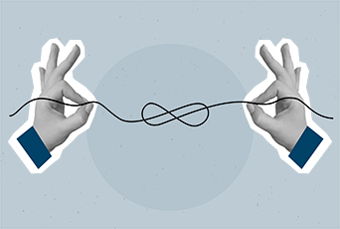2019 was a solid year for the stock market. The first three weeks of 2020 started much the same way until the threat of the Wuhan coronavirus sent markets tumbling. While the impact at this time seems temporary and relatively mild (at least compared to what could have been), the scare does serve as a useful lesson for investors.
What Happened?
A new virus in Wuhan, China, appears to have jumped from an animal source to humans, similar to previous viruses such as severe acute respiratory syndrome (SARS) and the Middle East respiratory syndrome (MERS). Making matters worse, the rise of the disease coincided with the Chinese Lunar New Year, a time when many in that country are traveling. As of February 14, there are 64,460 confirmed cases and 1,384 total deaths from this new virus.
Stock Market Reaction
Markets worldwide fell as coverage of the virus and the number of reported cases picked up. Concerns about both the lethality of the virus and its impact on economic growth both put downward pressure on stocks. Markets hate uncertainty, and this was a big dose of uncertainty. There was talk that this would turn out to be one of Nassim Taleb’s dreaded black swan events.
After a benign 2019, this was a useful, if painful, reminder to investors about the uncertainty inherent in stock market investments, especially in the short term. While the stock market has marched upward over time, the trip has not been without its share of bumps in the road. The market can retreat suddenly and without warning at any given time, think back to Q4 2018.
How Can You Protect Yourself?
Investors often like to think they can avoid downturns by getting out of the market before the downturn hits. But the evidence is strongly against anyone’s ability to do so consistently. Market timing in the end, is a losing proposition.
Your best defense is to think strategically rather than tactically. Don’t try to zig and zag your portfolio in anticipation of what the market may or may not do next. Instead, develop a plan that suits your situation and long-term goals and stick to it. In this case, that would have meant not panicking and selling in the face of the dire scenarios that proliferated and the concurrent market decline.
What Happens Next?
The Chinese government acted quickly, demonstrating lessons learned from the 2003 SARS outbreak. Areas encompassing more than 50 million people have been quarantined to contain the spread of the virus. As I write this, fears over the virus appear to be receding. The number of cases continues to rise, but the growth is not exponential. Current estimates are that the number of cases will stabilize in the next 1-3 months before declining. There are also reports of effective drug treatments for those affected and a “significant breakthrough” in the race for a vaccine.
The full economic impact of the scare will take longer to assess. At the very least, China is facing a temporary economic slowdown. Large swaths of various industries have ground to a halt with the government’s efforts to slow and eventually halt the spread of the virus. If SARS is a guide, though, the economic impact will be brief. The Chinese economy suffered an immediate dip back in 2003 due to the SARS outbreak, but it recovered very quickly.
Summary
While the impact of the virus seems like it will be temporary, it is a good reminder to investors to expect the unexpected. Markets generally do not go straight up, dips and fluctuations should be expected. Don’t make them worse by acting impulsively.
Prior to implementing any investment strategy referenced in this article, either directly or indirectly, please discuss with your investment advisor to determine its applicability. Any corresponding discussion with a Bedel Financial Consulting, Inc. associate pertaining to this article does not serve as personalized investment advice and should not be considered as such.
Recommended Articles
Private Equity and M&A in a Low-Rate World
Deal flow is the stream of business proposals, investment...
The Bonds that Tie – An Exciting Look at Fixed Income
With today’s yields being much higher than the close to...
Is America’s Tariff War Reshaping the U.S. Economy?
The 2025 tariff regime marks the highest average...





